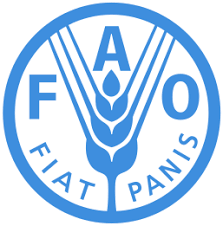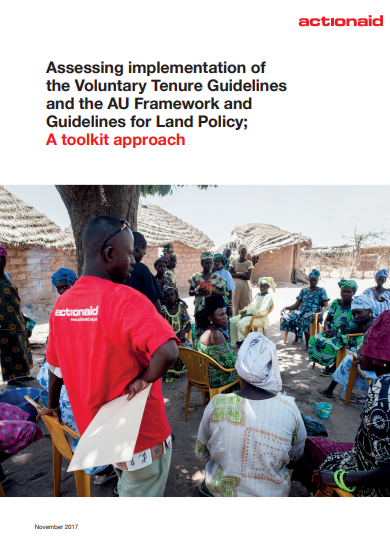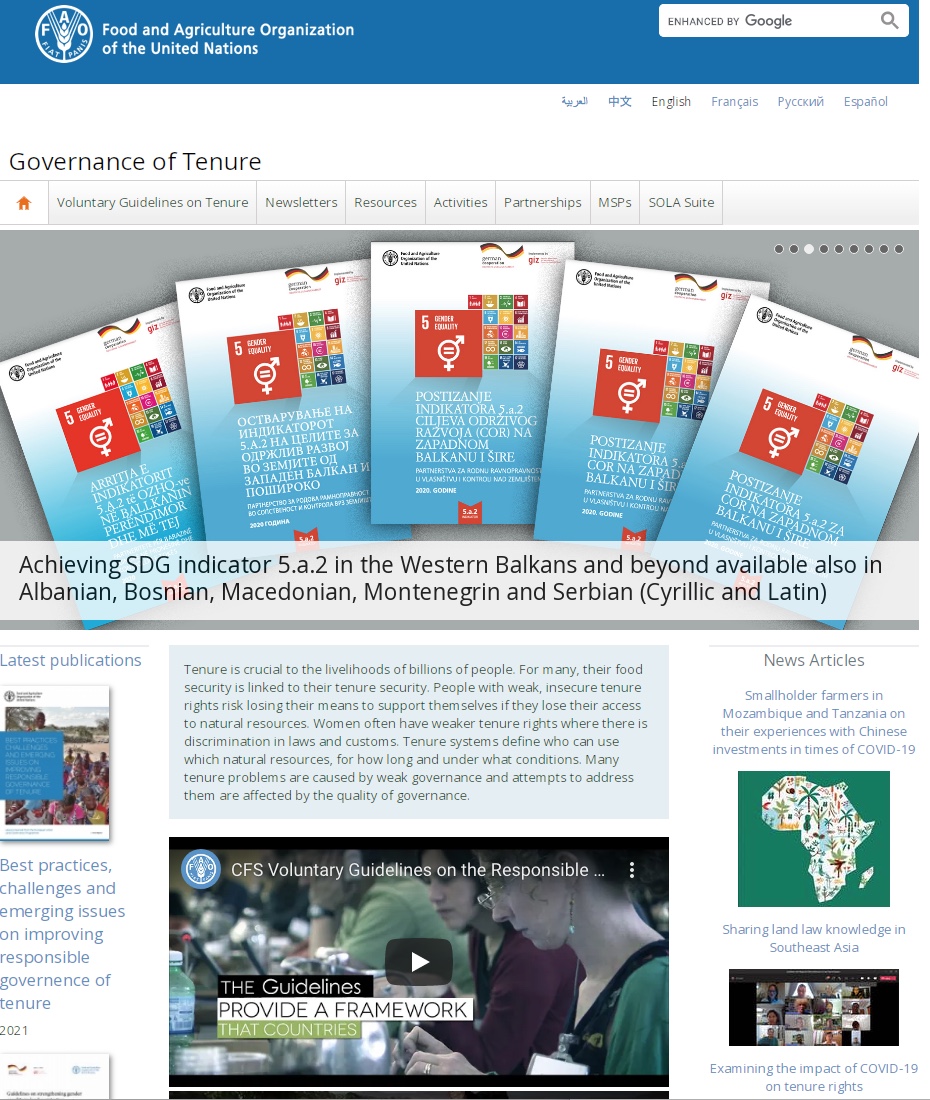VGGT: Fold-out User Guide to the analysis of governance, situations of human rights violations and the role of stakeholders in relation to land tenure, fisheries and forests, based on the Guidelines
This guide provides tools to understand the Voluntary Guidelines on the responsible Governance of Tenure, which sometimes uses technical language that is not easy to understand for those who are not used to reading this kind of text.











